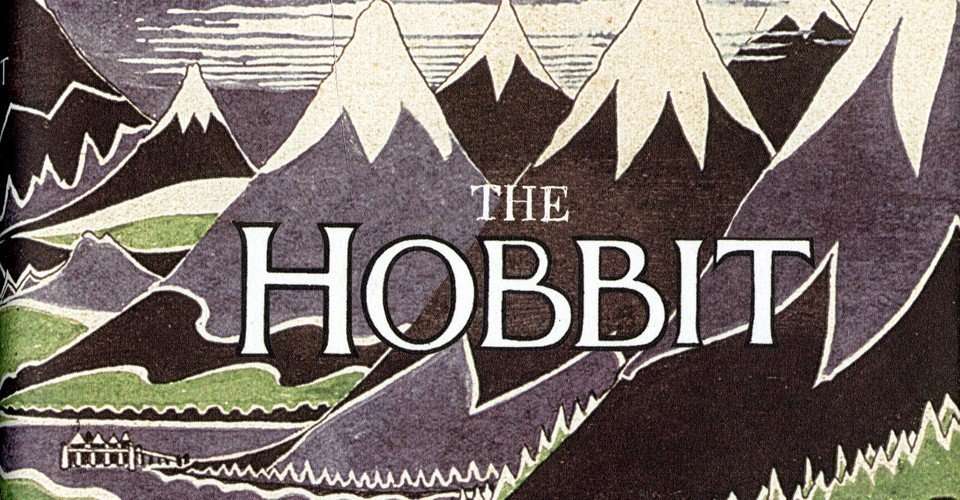“In a hole in the ground there lived a hobbit.” So began the legendarium that dominated a genre, changed Western literature and the field of linguistics, created a tapestry of characters and mythology that endured four generations, built an anti-war ethos that endured a World War and a Cold War, and spawned a multibillion-dollar media franchise. J.R.R. Tolkien’s work is probably best remembered today by the sword-and-sandal epic scale of The Lord of The Rings films, but it started in the quiet, fictionalized English countryside of the Shire. It started, 80 years ago in a hobbit-hole, with Bilbo Baggins.
Although Tolkien created the complicated cosmological sprawl of The Silmarillion and stories like the incestuous saga of Túrin Turambar told in The Children of Húrin, Middle-earth itself is mostly remembered today as something akin to little Bilbo in his Hobbit-hole: quaint, virtuous, and tidy. Nowadays, George R.R. Martin’s got the market cornered on heavily initialed fantasy writers, and his hand guides the field. High and epic fantasy are often expected to dip heavily into the medieval muck of realism, to contain heavy doses of sex and curses, gore and grime, sickness and believable motives and set pieces. Characters like Martin’s mercenary Bronn of the Blackwater are expected to say “fuck.” Modern stories, even when set in lands like A Song of Ice and Fire’s Essos that are filled with competing faiths, tend toward the nihilist, and mostly atheist. Heavenly beings are denuded of potency and purity; while the gods may not be dead, divinity certainly is.
Modern fantasy and its subgenres, as represented in Martin’s work, might be positioned as anti-art in relation to Tolkien. In that way, Tolkien still dominates. While the watchword of the day is subversion—twisting tropes, destroying moral absolutes with relativism, and making mockeries of gallantry and heroism—subversion still requires a substrate. So although fantasy creators in all media have devoted most of their energies in the past eight decades to digesting Tolkien, so in turn Tolkien has become part of the fabric of their works. There’s a little Bilbo in Tyrion, a bit of Smaug in Eragon’s dragons, a dash of Aragorn in Shannara’s Shea Ohmsford, and a touch of Gandalf in the wizards of Discworld.
That’s why, on this week’s anniversary of the publication of The Hobbit and of the entrance of Tolkien into the fantasy genre, it’s important to reread and reconsider his works, and his first especially. Although the short and whimsical book is considered lightweight compared to The Lord of the Rings trilogy, it’s still in many ways the best that literature has to offer. Tolkien is first a linguist, and it’s not only his creation of elvish, dwarvish, and orcish languages out of whole cloth that impresses, but also the way he toys with English and illustrates the power of language itself to create. Ever a good author surrogate, Bilbo’s true arms and armor aren’t his trusty half-sword Sting or his mithril shirt, but—as Gollum would find out—his words and riddles. As Bilbo tells Smaug, the dragon:
I come from under the hill, and under the hills and over the hills my paths led. And through the air. I am he that walks unseen. … I am the clue-finder, the web-cutter, the stinging fly. I was chosen for the lucky number. … I am he that buries his friends alive and drowns them and draws them alive again from the water.
Bilbo’s warrior-poetry is big and boastful enough to go toe-to-toe with Muhammad Ali.

Dreddy on September 24th, 2017 at 23:41 UTC »
When I was young I had poor reading skills and had to stay back after school for extra reading time.
I was 12 and in my final year at primary school and my teacher Mr Gormon spent 15 minutes a day reading the Hobbit all year long.
End of the school year and the party of adventurers approach the Lonely Mountain and finally figure out how to open the cave. Bilbo is sent on reconnaissance...
"Well that's it kids. It's been a good year. If you want to find out what happens you'll just have to read it yourself"
From that point on I devoured books and my slight dyslexia and unwillingness to learn was overcome.
The Hobbit and that teacher literally changed my whole life.
AeonOdin on September 24th, 2017 at 21:07 UTC »
The public high schools I work in allow students to take English 101 for college credit. The Hobbit is regularly assigned reading because of the vast amount of themes, allegory and improvised vocabulary that Tolkien employed in his writing.
To say it "Still Matters," is kind of redundant. As far as novels go The Hobbit is no less relevant to today as when it was published. Tolkiens work is as impacting as The Old Man & The Sea, or Crime & Punishment, in the sense than its still as often read a book beyond its time.
GivenToFly164 on September 24th, 2017 at 20:53 UTC »
From the article: "The central lessons of the book aren’t found in the fantastic elements... [but in] the dignity of humanity, the virtue of generosity, a respect for life, a duty to do good, and the ways in which brotherhood can be used to move men toward those ideals."